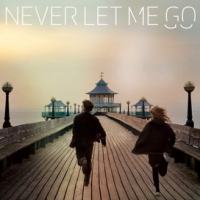
Mostly because I can, I thought that I’d treat you to something a tiny bit different today. My brother was giving me his review of Mark Romanek’s latest film, Never Let Me Go, the one based on Kazuo Ishiguro’s novel, and starring Andrew Garfield, Keira Knightley, and Carey Mulligan and he was doing it so well I thought that you guys might enjoy it, too. So without further ado, here’s what the young Mr Bowker has to say about it. It’s not particularly spoiler-y, but there are some key plot elements in it. Just so that you know.
Last Monday (yes Valentine’s day, no not in a romantic context) I went to see Never Let Me Go. I went in a group of six people and to say opinion was divided wouldn’t be, well inaccurate. Three people liked it, a lot, three did not; I was one of the latter.
The film focuses on the lives of three characters, Kathy, Tommy and Ruth (portrayed by Carey Mulligan, Andrew Garfield and Keira Knightley, respectively) and their lives as people cloned for the purpose of becoming organ donors. Specifically, it focuses on the love triangle between these three occurring over three decades, beginning in 1974, moving to 1984 and then finally 1994.
For me, skipping between decades, while necessary for the plot, didn’t encourage any great emotional connection with the characters, so I found their tribulations boring. I had no stake in them. I thought the film was too short to get to the bottom of the relationships properly; perhaps if it had taken time to build the characters and make them more multifaceted with more layers to find interest in I would have found myself more engaged.
The film’s based on a book, and a few of the differences between novel and script seem to have had an influence on the portrayal of the characters. The most important difference is the addition of tracker wristbands in the film. In the film the characters are kept captive to their lives by these wristbands that, ehm, keep track of their whereabouts; in the book they are nonexistent, leaving more room to play with the concept of freedom and captivity as a major plot device.
Of course, if this had been in the film, it’s possible that many people would have gone away thinking it was a huge plot hole saying ‘Well, why didn’t they just run away?’ but if the film were based around the concept of freedom, choice and the ethics of breeding clones to be used as organ donors (which was only covered briefly towards the end of the film) it would have been far more impressive. At least, I think so. It seems to me the writers have taken a thoughtful and contemplative book and reduced it to a simple story of a love triangle.
As for the cinematography, I thought it simple but effective. It matched the story line well; when the characters were young and carefree it was bright and sunny, but as the story progressed and their lives seemed more bleak so to did the visual side of the film. (I probably would have found it even more impressive if the projection had not been awful, with wiggly green and black lines flickering down the screen for much of the film.)
The shots didn’t come over as too artsified, with needless bokeh or camera glare, either (not that there is much opportunity for either of those things in any of the scenes). The camera work simply tells the story, which is no mean feat. On many occasions, art is what you leave out rather than what you try to cram in; restraint and skill can go hand-in-hand. And Never Let Me Go is definitely restrained and all the more beautiful for it. Still, it is pretty hard to make things ugly when they’re filmed on the Norfolk and Sussex coastlines, not to mention the St Andrews University campus.
In conclusion, while the film was pretty, it was far too one dimensional and didn’t quite do enough for me intellectually or emotionally. It felt as if there were something missing, and as if things moved a bit too fast. It all trundled along in an inevitable fashion to the conclusion you knew it would have from early on. It’s by no means a bad film – and it is definitely very beautiful – it’s just disappointing, because it could have been very, very good.
(Guest written by Josh Bowker.)
